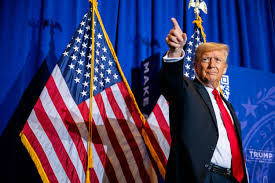Brexit has not been 'done': anyone who has followed the plot at all will know January 31 2020 is only the date when negotiations between the UK and the EU start at last. But at least the date marks a new situation, the release Britain's democracy reportedly longed for, so let us pause and look at events so far.
In the end it was as simple as Boris Johnson has always striven to make it appear. What was necessary was a hand-picked cabinet of right wingers, Mr Dominic Cummings' hard-faced control and power to dismiss or ruin anyone who did not stay on message, and Mr Johnson's ability to reduce any serious matter to a laugh.
His 'oven-ready' Brexit recipe ('Gas Mark Four in the Microwave' was Mr Johnson's populist pleasantry on the campaign trail to spice up a more indigestible hash than the one he had earlier turned his nose up at and replace his original appetiser of your-cake-and-eat-it - but why not another culinary trope if it works?) was then swallowed gratefully in the general election.
There is no arguing with an election; that is liberal democracy even if a dated, simple-majority, advisory referendum presented as a mandate is arguably not. So what went wrong, if indeed anything went wrong? Again, it is simpler than both sides will now make out.
The record does not show Jeremy Corbyn supporting Europe; socialism in one country perhaps better describes his position. But whatever his personal views or those of the wing of the Labour Party that supports him, Mr Corbyn could not declare for Remain or Leave. His party, mirroring Labour voters throughout the country, was divided top to bottom on it.
The Tories, still in government following Theresa May's resignation, had to decide on a new leader and they had decided on Mr Johnson. When he said Leave was do or die, he was for once serious: that is exactly what it was for them all politically. Mr Corbyn in Opposition, lacking the conviction and leadership qualities to make a bold stand, sat on the fence to the end.
The Tories, still in government following Theresa May's resignation, had to decide on a new leader and they had decided on Mr Johnson. When he said Leave was do or die, he was for once serious: that is exactly what it was for them all politically. Mr Corbyn in Opposition, lacking the conviction and leadership qualities to make a bold stand, sat on the fence to the end.
And a bitter end it is. Mr Corbyn is being blamed for something any political analyst could have told him: that 'the workers' can vote Labour all their lives but still be social conservatives (note the small 'c'). When to get Brexit done they were even ready to join the Conservatives with a capital 'C', how could a radical programme of tax and spend, earnest pledges to accommodate the many in a new, kinder world, win the day?
Yet no form of Brexit can make those questions disappear; for now that must be Labour's consolation. Democracy is the best form of government, not a guarantee of the best outcome.
Yet no form of Brexit can make those questions disappear; for now that must be Labour's consolation. Democracy is the best form of government, not a guarantee of the best outcome.













